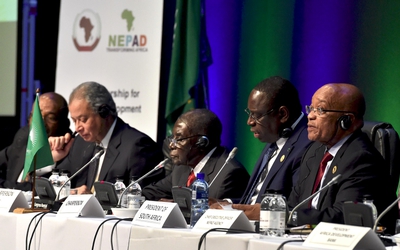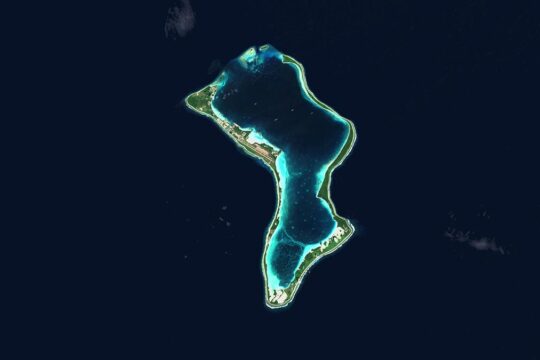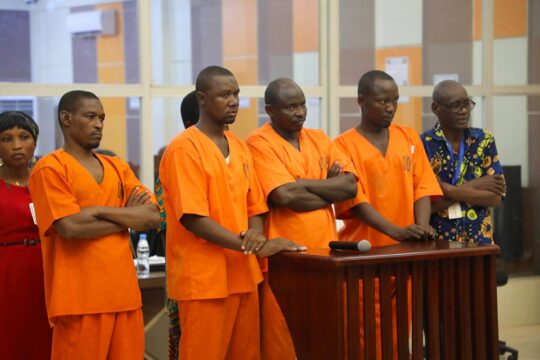South Africa’s failure to arrest Sudanese President Omar Al Bashir as he attended an African Union (AU) summit in Johannesburg has raised once again the issue of whether sitting heads of state should enjoy immunity from prosecution. The International Criminal Court issued arrest warrants for Bashir in 2009 and 2010 for war crimes and genocide committed in Darfur, but he has not been arrested and continues to travel. Relations between the International Criminal Court and African states have become increasingly strained.
Dapo Akande is Professor of Public Law at Oxford University and a former adviser to the African Union on relations with the International Criminal Court. Interview for JusticeInfo.net:
JusticeInfo.net: Why do you think relations between the African Union and the International Criminal Court are so strained? What are the root causes?
Professor Dapo Akande: I think there are a number of factors. The first thing is, relations only got to the position that they got to when the ICC issued an arrest warrant for Bashir and then later on for Gaddafi and then later on in the Kenyan cases. So essentially, the way that I read it is that African governments were happy with the ICC until they realized that actually the ICC might have implications for the heads of state personally. So that, I think, was the first turning point, I think heads of state all of a sudden realized that this might affect us personally. Secondly, people often talk about the fact that the ICC is only investigating and prosecuting in Africa. And of course that is true, but there are reasons for that, and part of the reasons for that is that African governments and African countries have themselves referred these cases to the ICC. Anyway, that didn’t seem to bother them until the heads of state themselves felt personally threatened. The third thing that I think has been a problem is that I think the ICC didn’t itself respond as well as it could have in the early days of this tension arising. Particularly on this issue of immunities of heads of state. The judges ignored this issue despite the fact that African countries for a long time were asking for a decision on this issue. And I think African governments kind of felt snubbed because the issue was just completely ignored. So I think that was a misstep by the ICC itself, ignoring this issue for quite a while, and then by the time they took it seriously, it had gathered its own momentum.
JusticeInfo.net: So what do you think the ICC should have done or should do now on the immunity issue?
DA: Well, they’ve issued a couple of decisions on the immunity issue, which African states have not respected. South Africa is now just one of a number of states that have failed to comply with the ICC’s rulings on immunity. What I think can be done is to seek an opinion from the International Court of Justice on the question of the immunity of Bashir. Because African states clearly don’t regard the ICC’s decision as something which they are bound by… or rather, they are bound by it, but they don’t see it as legally valid. Erroneously, but I think that’s the way they feel. And I think perhaps trying to get an advisory opinion from the International Court of Justice might move the debate along, and it might shift it from an ICC-Africa issue, and make it something that an authoritative body like the ICJ, the International Court of Justice, has pronounced on.
JusticeInfo.net: Why would the ICJ have more weight than the ICC, and legally, isn’t the ICC bound by its own Statute, rather than another court?
DA: That’s exactly right. So first of all, the ICC is bound by its own Statute and not by another court, so the ICC will not be bound by whatever the ICJ says. And what I am suggesting is an advisory opinion by the ICJ, which in any event is not going to be binding on anybody. But the reason it might be significant and why it might be helpful is not so much because of the ICC but because of other states. The ICC decisions and the ICC orders still need to be implemented by states. And the position that we’re in is that the states that have the obligation to implement this order don’t regard that position taken by the ICC as legally correct. They view the ICC decision as wrong and as something that does not take into account broader international law. So getting an opinion from the ICJ, to the extent that the ICJ agrees with the ICC position, removes this argument that the ICC got it wrong. So that’s the first reason. The second reason is because of the polarization between the ICC and African states. Even if African states felt that the ICC has got the position right, the fact that there is this antagonism makes it difficult for them to actually acknowledge that and implement that, whereas having something that’s authoritative from a body which at least they respect, makes it more likely, not guaranteed by any means but more likely that there will be some movement on that issue.
JusticeInfo.net: How would it work? Would the case have to be referred to the ICJ by a particular state?
DA: It would have to be referred to the ICJ by the General Assembly of the United Nations, as a request for an advisory opinion. The ICJ can hear two types of cases. First of all disputes between states, so not that type, although you can’t rule it out…but more likely, the General Assembly of the UN can refer a question to ICJ for an advisory opinion.
JusticeInfo.net: It was perhaps an ICJ decision that helped get the Habré trial set up. The trial is set to start on July 20 in Senegal and the court has the backing of the African Union. So how do you see that trial in this whole context?
DA: Of course the crucial difference between that case and this one is that Habré is an ex-head of state, that’s much more acceptable. It’s not inconceivable that you could have some kind of process to try Bashir as a sitting head of state, but it’s obviously much more difficult to do that. I think part of the sympathy that other African heads of state have for Bashir is the fact that they are also heads of state, so they can see this potentially being them. So, the Habré precedent is a good one, but there is this difference between the ex-head of state and the head of state.






